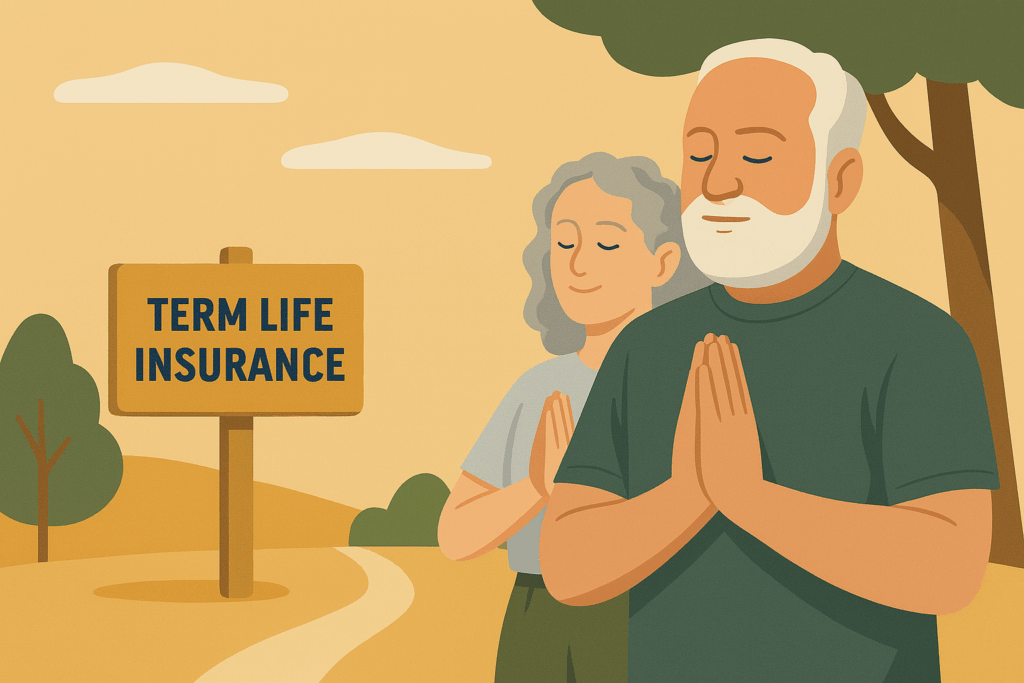Buying term life insurance is a smart move to protect your family during key stages of life—raising children, paying off a mortgage, or building financial stability. But what happens if you end up outliving your term life insurance?
While that may sound like a bad thing, it often just means you’re living longer than expected—which is great! Still, understanding your next steps can help you stay covered and make smart financial decisions as you age.
First, What Is Term Life Insurance?

Term life insurance provides coverage for a set number of years—often 10, 20, or 30. If you pass away during that time, your beneficiaries receive the policy’s death benefit. But if you’re still alive when the term ends, the coverage simply expires.
Unlike permanent life insurance, term policies don’t build cash value. That means when the term ends, so does the protection, unless you choose to extend or convert it.
For a detailed guide on choosing the right policy from the start, check out our article on how to choose the right life insurance policy for your family.
Outliving Term Life Insurance: What It Really Means
Outliving your policy means you no longer have coverage—and no payout will be made to your beneficiaries if you die after the term ends. This can be a concern if your dependents still rely on your income or if you’re carrying financial obligations.
However, this situation isn’t as dire as it may seem. In fact, many people plan to outlive their term policies because their need for life insurance declines over time.
Still, it’s a good idea to know your options before the term ends—ideally at least a year in advance.
What Are Your Options When the Term Ends?
Depending on your policy and your financial needs, you may have several paths to consider:
1. Let the Policy Expire
If your kids are grown, your mortgage is paid off, and you have enough retirement savings, you might not need life insurance anymore. In this case, you can simply let the policy lapse with no further action.
2. Renew or Extend the Policy
Some term policies allow for renewal after the original term—often on a year-to-year basis. But beware: premiums typically increase significantly since you’re older now.
While this might be helpful for short-term coverage, it’s usually not a cost-effective long-term solution.
3. Convert to a Permanent Policy
Many term policies include a conversion option that lets you switch to a permanent policy—like whole or universal life—without a medical exam. If you want lifetime coverage or have developed health issues since buying your term policy, this can be a valuable move.
That said, permanent policies are much more expensive, so be sure to evaluate whether the added cost fits your financial goals.
4. Buy a New Term Policy
If you’re still in relatively good health and need coverage for another 10–20 years, applying for a new term life policy could make sense. Just keep in mind that your age will affect your premiums, and you’ll likely need to go through medical underwriting again.
Bonus Option: Return of Premium Policies

Some term life policies offer a “return of premium” rider. If you’ve chosen this add-on, and you outlive your policy, you’ll get back some or all of the premiums you paid over the term. It’s like getting a refund for not needing to use the insurance—but at a higher cost upfront.
For more on this and other consumer-focused life insurance tips, the Texas Department of Insurance has a helpful overview of common life insurance options.
Should You Worry About Outliving Your Policy?
Not necessarily. In fact, outliving term life insurance often means your financial planning is working. The key is preparing before the policy ends, not after.
Ask yourself:
- Will anyone suffer financially if I die tomorrow?
- Do I still have major debts or dependents?
- Can I afford a new policy or conversion if needed?
If the answer to any of those is yes, it’s time to explore your next step.
Final Thoughts
Outliving your term life insurance policy isn’t a failure—it’s a sign you made it through a chapter of life. But as your policy nears its end, take the time to evaluate your financial situation and insurance needs moving forward.
Whether you decide to convert, renew, or walk away from coverage, understanding your options now gives you control—and peace of mind.

